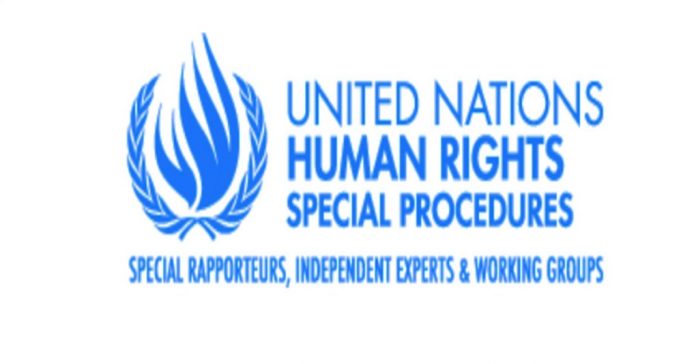25 nov – On the International Day for the Elimination of Violence against Women, UN and regional experts on violence against women and women’s rights* call upon all States to close the gap between international and national laws on rape and sexual violence.
“In recent years, through campaigns such as #MeToo, #TimesUp, #Niunamenos, #NotOneMore, and others, the voices of rape survivors, both in times of war and in peace, have placed the spotlight on this issue and have reached an upsurge that can no longer be silenced or ignored,” the experts said in a joint statement.
“As we look to the future, and in order to address the chilling impact that rape and sexual violence against women has on the human rights of women, urgent action must be taken by States, but also by non-State actors, as well as international organisations and independent monitoring mechanisms, civil society organisations and women’s rights movements.
“We must strive to prevent and combat rape and sexual violence, to challenge the gender stereotypes and the negative attitudes and behaviours that underlie and perpetuate such violence, and to support and provide redress to women who are willing to speak up.”
The experts said that rape is one of the most under-reported crimes, and even when it is reported it is rarely prosecuted. This is due to a number of factors including gender based stereotypes, as well as criminal justice systems which define rape based on the use of force. These present the key obstacles for needed change.
“The persistence of widespread and systematic rape and sexual violence against women and girls, even in States that have proclaimed zero tolerance on violence against women, demonstrates that sexual violence is deeply entrenched in our still predominantly patriarchal societies,” the experts said.
“Power and control continue to create a social environment whereby such violence is normalised, and gender-based stereotypes on the role of women in society undermine and devalue women.
“These factors contribute to the unacceptable tolerance of rape, including within criminal justice systems, often resulting in impunity for perpetrators. Moreover, criminal justice systems that adopt force-based definitions of rape often require evidence that the perpetrator used coercion and that the victim failed to fight back. As such, the burden is placed on the woman to prove that she resisted. If unable to do so, the perpetrator would walk free while the victim is left stigmatised.”
ENDS
(*) Dubravka Šimonovic, Special Rapporteur on violence against women, its causes and consequences; Hilary Gbedemah Chairperson of the UN Committee on the Elimination of Discrimination against Women; Meskerem Geset Techane,, Chair of the UN Working Group on the issue of discrimination against women in law and in practice; Marceline Naudi, President of the Group of Experts on Action against Violence against Women and Domestic Violence of the Council of Europe (GREVIO); Margarette May Macaulay, Inter-American Commission on Human Right’s Rapporteur for Women’s Rights; Lucy Asuagbor, Special Rapporteur on Rights of Women in Africa; and Sylvia Mesa, President of the Committee of Experts of the Follow-up Mechanism to the Belém do Pará Convention.

